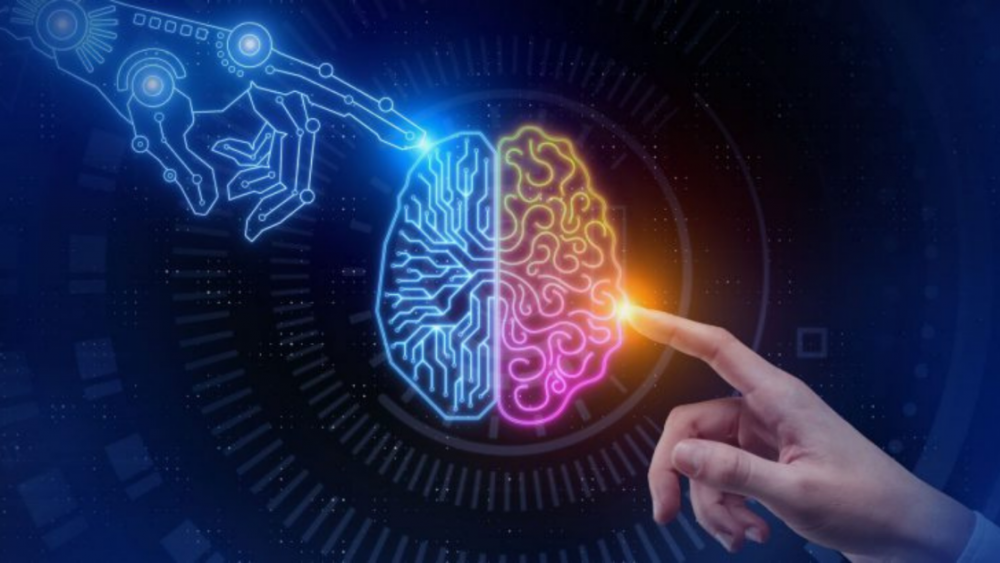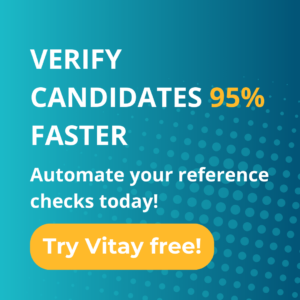Will AI Spell The End Of Traditional HR Jobs?
We edge ever closer to 2050 the earliest prediction of singularity, when AIs gain self awareness and wipe out the human race, according to every sci-fi novel ever made anyway. But it’s only 2020 and we have a good 30 years before we have to worry about skynet, so let’s talk about how AI is going to completely change the HR field.
One of the biggest concerns for a lot of industries is that AIs are going to make a lot of jobs obsolete, which may be true for most of them but in HR , we believe the future is a combination of digital and human interactions. We would be using the technology to make HR processes far more efficient, intuitive and personalised based on the candidate.
Employee turnover is an issue that plagues a company of any size , this will be another HR problem that AI will be able to help mitigate and is already being used by IBM. Nicknamed Watson, their AI can predict which employee is planning on leaving their jobs with an accuracy of 95%. Watson has already saved the company over $300 million in retention costs.
In addition to Watson, IBM has expanded their suite to cover solutions like the annual performance review, in fact the AI used for that was so good that they adapted it and made it available to employees as IBM’s MYCA (My Career Advisor) , which provides them with valuable career feedback to help them learn and grow within the company.
Another solution being explored by HR experts is being able to predict an employee’s performance and turnover rate even before they have joined a company. Theoretically this would be done by feeding an AI data from a candidate’s pre-screen questions, references and interview. Once the AI has a large enough data set, it would be able to tell employers how a candidate would perform in that role and if they would stay with the company.
The Jobs of the Future
We spoke earlier about how the introduction of AI would make a lot of jobs obsolete, that number is actually close to 75 million, according to the Future of Jobs Report. But fret not, the same report also predicts that 133 million new jobs are going to be created in this post AI era.
However it is true that a lot of careers that you may be used to are going away, and one of the hardest challenges we will face is transitioning and adapting to the new types of jobs. But this isn’t something we haven’t seen before, similar to how the industrial revolution rendered a lot of professions obsolete.
If you’re reading this and wonder how you can prepare yourself for the future, having some of these skills : emotional intelligence, analytics or programming, will make the transition easier.
Not all our jobs are going to be replaced by robots, they are poised to make a lot of it far easier for us. Oracle and Future Workplace conducted research with 600 HR leaders entitled AI At Work, to learn where AI was being used in the workplace to re-imagine candidate and employee experience:
“It’s ironic enough that artificial intelligence excels in sourcing human employees. Now add the fact that AI can free employees to be more creative and engaged and you begin speaking to our humanity. Every opportunity is different, and yet HR has been here before—presented with a promising technology that it can choose to either embrace or ignore. Or try to ignore, for a while. The lesson HR learned from mobile and social was that progress waits for no one.”
Rise of Skill Based Hiring
Skill Based hiring is essentially “ the practice of setting specific skills and competency requirements for a job rather than rely solely on candidates’ credentials.” According to glassdoor some of the biggest companies in the world like Apple, Google , IBM have already adopted this mindset.
Advocates for this have seen :
- Turnover: 25-70% reductions in turnover,often to levels of 4% or less, due to a more exact match of applicant to position.
- Training: 25-75% reductions in employee training time, training cost, and/or time-to-full-productivity
- Hiring: 70% Reductions in cost-to-hire,50%-70% reductions in time-to-hire
- Productivity: Significant increases in total employee productivity
- Universality: The same skills-qualification methodology can be used for all jobs within the same company, from entry-level through upper management. This is because skills tests are designed to assess across a far larger range of ability than typical academic, placement, or certification exams.
- Ability to locate applicants for “hard-to-fill” jobs requiring unique skill combinations or jobs for which there is no formal degree program
- Shifting of the testing burden from the employer to the applicant
However it does not come with its drawbacks, one of the biggest deterrents for adapting this for your company is the cost, particularly for job profiling (typically $3–$5K and 1-2 hours) This cost and time sink can add up quickly and start becoming a huge obstacle for companies wanting to recruit quality talent. This is where AI and tools to automate pre screening would come in. By eliminating this hurdle, we could see an era where you could field the right person for every job.
Predictive Hiring
Let’s look at another example, the people at Unilever are using AI to help with their recruiting. Currently focused on the mass number of candidates the company receives, the AI reviews resumes, collects applicants’ responses for pre-screening questions, conducts psychometric profiling assessments, and answers questions.
In doing so, the AI offers applicants a faster, more streamlined process, with real-time interaction available 24/7, while saving the company more than 100,000 man hours. With more time, recruiters can focus on other areas of their job, including sourcing for candidates and interviewing applicants.
According to Unilever the AI has been trained to scan graduate candidate’s facial expression, body language and word choice and checks them against traits that are considered to be predictive of job success. Other companies that have jumped into the AI bandwagon include: Vodafone, Singapore Airlines and Intel.
The HR industry is constantly evolving, it’s up to you to make sure that your company is ready for AI and everything it brings with it, as our friends at oracle put it : Progress waits for no one.




Comments are closed.